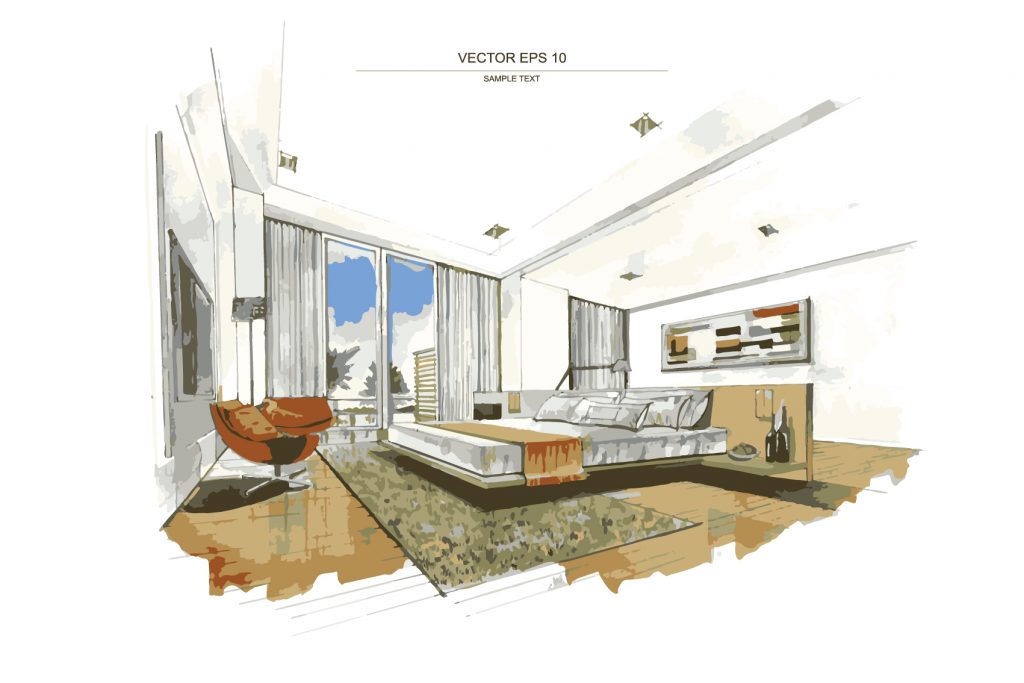People know interior designers as the ones who mix and match certain elements in a room. Nowadays, however, their responsibilities are no longer limited to improving an area’s aesthetic value. They also see to it that spatial designs don’t affect the users’ moods negatively.
An interior design graduate opens themselves to a variety of possible career paths, and this can further expand with a master’s degree. Although graduate studies are not for everyone, it can be especially helpful for those who enjoy learning within a structured environment.

Table of Contents
Master’s Degrees and Further Studies: How They Can Help Your Interior Design Career
A bigger knowledge base isn’t the only thing that can come from obtaining a master’s degree in interior design. It can also attract better career opportunities compared to a bachelor’s degree holder. Skills and talents aside, it cannot be contested that an added degree can make you qualified for more jobs and projects.
Master’s programs typically require applicants to have a bachelor’s degree plus a design portfolio that shows their skills and competencies in the projects they’ve handled. This will give your chosen university an idea on where your skill level is currently at.
Perhaps you’re not sure about enrolling for another degree as it may take your time away from your other responsibilities. Fortunately, online master’s degree courses are now available to cater to students who need more flexibility in their schedules.
If you’re still unconvinced about pursuing a master’s degree in interior design, here are 4 reasons why you should definitely consider taking this chance:
1. Learn How to Integrate Your Interior Design Knowledge in Other Fields
Interior design plays a huge role in various personal and professional settings. While undergraduate studies can help you hone your creativity in relation to a place’s visual elements, going for graduate studies will bring this knowledge a notch higher.
This time, you’ll learn how to further specialize your skills and create designs that cater to users’ mental and emotional states. For example, you might want to focus on designing academic environments, health and wellness centers, apartments, office set-ups, social hostels—basically any kind of setting that you’re particularly interested in.
A master’s degree can help you choose which types of projects you want to devote yourself to. You’ll also learn how design elements affect human moods and behavior.
2. Learn About New Graphic Communication Skills
You may have learned about the basics of graphic communication skills during your undergrad, but you’re bound to add more skills that can further enhance your designs. As a result, you’ll be able to communicate your projects in a much clearer way with your superiors, colleagues, and clients.
This includes updating your skills in digital trends, animation, and digital rendering. This helps people appreciate your work more.
3. Attract Bigger Projects and Clients
Perhaps your current portfolio is already impressive enough. You may have done projects that have had really good feedback from others, helping you land better opportunities through word-of-mouth.
Although your previous works can speak for themselves, a master’s degree will tell future bosses and clients that you’re really serious about your work as an interior designer. More people will be interested to know what you can put to the table.
- Pay It Forward to the New Generation of Interior Designers
Aside from pursuing a career as an interior designer that specializes in certain types of projects, being a master’s degree holder will also give you an opportunity to pursue a teaching career. Most universities require an instructor to have a master’s degree. If you want to pay it forward to young, aspiring interior designers, this is your chance to fulfill that role.
While students supposedly are the ones learning from their teachers, oftentimes teachers also tend to learn a lot from their students. The kind of creativity that you’ll see from your students can help you come up with innovations that can be applied to your future projects.
Conclusion: Enjoy More Career Paths with a Master’s Degree in Interior Design
Having a master’s degree in interior design can make your career a lot more fulfilling than it was before. Your skills and knowledge will no longer be just limited to design elements and theory. You’ll also learn how to make your designs work in various settings and environments.
Interior design isn’t just for showing off how great a place looks. In many cases, it can be deeply personal. This is something that you can further hone with a master’s degree. Before long, more opportunities will come to you—great clients and projects that you’ll truly be passionate about.

